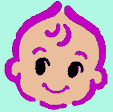Talents and accomplishment may reside anywhere; multi-talented people employed in one field have hobbies, passions and a sense of curiosity that can develop into substantial accomplishment. But such talents are often veiled & out of sight. One pathway for discovery is "crowdsourcing" (an open call for problem solving), but other systems for detection, utilization & reward should be devised. Let's utilize these resources!
Because academic publishing is a long and often tedious procedure, it does not accurately reflect the sum of progress in a research field. Researchers often follow lines of inquiry which never result in publications. This may be simply due to findings being judged uninteresting to the community or to the individual researcher. Perhaps the researcher, adequately understanding a phenomenon, wishes to direct his or her attention elsewhere. Little or no overt achievement may accrue. How might such work / interests be charted?
It is common to think of specialists or experts as being highly-capable in one or perhaps two fields. But while vocational expertise uses focused marketing in support of a concentration, actual expertise may span a range of fields, and perhaps dozens of subfields. Acknowledgment of wide-ranging talents might damage specialist reputation where the public perceives a lack of concentration, or where multiple achievements engender envy or uncomfortable self-reflection in surrounding individuals.
Universities are often considered validators of achievement, but it's tough to gain university credit for non-formal education. Most universities require that a person register as a student, pay large sums of money, and sit in a classroom for dozens or hundreds of hours; non-traditional education undercuts their trade. So-called "higher education" often wastes great amounts of critical time and resources. But after investing heavily in the university system, many graduates are unwilling to offer public criticism. (I've four university degrees, from good institutions in four different nations. In each case I learned a lot. But each program also had substantial weak points, and a lot of time was wasted. Maybe the greatest weakness was pedagogical: most professors are untrained in educational method, and students suffer tremendously).
I hope the Localversity system can help reveal and validate accomplishment among the general public, and put wider energies to good use. Write to me with ideas. Or donate funding toward Localversity's alternative approaches to a better world.
skip to main |
skip to sidebar

Search
About Me

- Mindwatch
- Free Travels with Hawaiian navigation = No butt-kissing ... Voice of Bold Aloha. Non-corporate Wake Up difference from your lively cousin overseas.
Author profile
"One outsider, pissing in ..."
Original, often strident essays
(more await added courage)
My poetry is written under the penname Genki 元気 meaning 'original spirit' or healthy/happy
